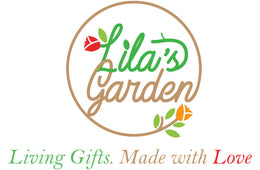Succulents have surged in popularity as house plants, and it's easy to see why. These hardy, resilient plants bring more than just greenery into your home—they bring a myriad of benefits that make them ideal for indoor environments. From their low maintenance needs to their diverse aesthetic appeal, succulents offer a plethora of advantages that make them the best choice for house plants. In this article, we’ll explore the reasons behind the growing trend of keeping succulents indoors, emphasizing their practical and decorative benefits.
Why Succulents Make the Best House Plants
1. Minimal Maintenance
One of the most compelling reasons to choose succulents as house plants is their minimal maintenance requirements. Succulents are drought-resistant, primarily due to their ability to store water in their leaves, stems, or roots. This adaptation allows them to thrive in arid conditions and makes them particularly forgiving to forgetful waterers. Unlike more sensitive plants that need specific humidity levels and watering schedules, succulents generally require watering only once every few weeks. This low-maintenance nature makes them ideal for busy individuals or those new to plant care.
2. Versatility in Design
Succulents come in an astonishing variety of shapes, sizes, and colors, offering endless possibilities for home decoration. From the rosette shapes of Echeveria to the trailing tendrils of String of Pearls, succulents can fit any design aesthetic. This versatility makes it easy to use them in various decor styles, whether you’re aiming for a modern minimalist look, a bohemian vibe, or something uniquely your own. Moreover, succulents can be displayed in numerous ways—potted individually, grouped in terrariums, or even mounted on walls, providing flexibility in how you incorporate them into your home.
3. Air Purification
Plants are well known for their ability to purify the air, and succulents are no exception. While they may not have the same air-cleaning power as some leafier plants, they still contribute to a healthier indoor environment. Succulents like Aloe Vera and Snake Plant (Sansevieria) are particularly effective at removing toxins such as benzene and formaldehyde from the air. Additionally, since they release oxygen mainly at night, they can improve air quality while you sleep, which is especially beneficial in bedrooms.
4. Therapeutic Benefits
Beyond their physical benefits, succulents offer psychological and therapeutic advantages. Interacting with plants, including watering and caring for them, has been shown to reduce stress and enhance mood. The presence of succulents in your home can create a calming atmosphere, helping to alleviate anxiety and promote a sense of well-being. Furthermore, the act of tending to these plants can be a meditative and rewarding hobby, providing a peaceful break from the hustle and bustle of daily life.
5. Adaptability to Indoor Conditions
Succulents are exceptionally adaptable, capable of thriving in a range of indoor conditions. They prefer bright, indirect light, but many varieties can tolerate lower light levels, making them suitable for less sunny spaces. This adaptability extends to temperature as well; succulents generally do well in typical indoor temperatures, which aligns perfectly with most home environments. Their resilience and ability to adapt make them excellent choices for parts of the house that might not be ideal for other plants.
6. Longevity and Growth
When cared for properly, succulents can be incredibly long-lasting. Many grow slowly and can live for many years, even decades, with minimal care. This longevity makes them a cost-effective choice compared to flowers or other plants that may require frequent replacement. Additionally, many succulents are easy to propagate from cuttings or leaves, allowing you to expand your collection without additional cost. This aspect of succulent care not only adds value but also provides an enjoyable way to engage with your plants.
7. Educational Value
For families with children, succulents provide a fantastic educational opportunity. They can be used to teach kids about biology and the environment in a hands-on way. Caring for succulents helps children learn about responsibility and the basics of plant care, including the importance of water conservation and understanding plant growth. The forgiving nature of succulents makes them ideal for learning, as they are resilient enough to withstand some neglect while still providing valuable lessons in natural science.
8. Space Efficiency
Succulents are ideal for small spaces. Due to their compact size, they fit well in apartments, dorm rooms, or homes with limited space. They can be placed on window sills, desks, and shelves without taking up much room, making them perfect for adding a touch of nature to cramped quarters. Their size and ease of care also make them suitable for offices, where they can provide a splash of color and life without requiring extensive maintenance.
Conclusion
Succulents are not just plants; they are a practical, beautiful, and beneficial addition to any home. Their easy care, versatility, and numerous benefits make them the best choice for house plants, particularly for those seeking a low-maintenance but stylish greenery solution. Whether you're a seasoned gardener or a first-time plant owner, succulents offer something for everyone, enhancing your living space both aesthetically and environmentally. As more people discover these benefits, it’s clear that the popularity of succulents as house plants is not just a trend, but a lasting shift towards more sustainable and enjoyable indoor gardening.
